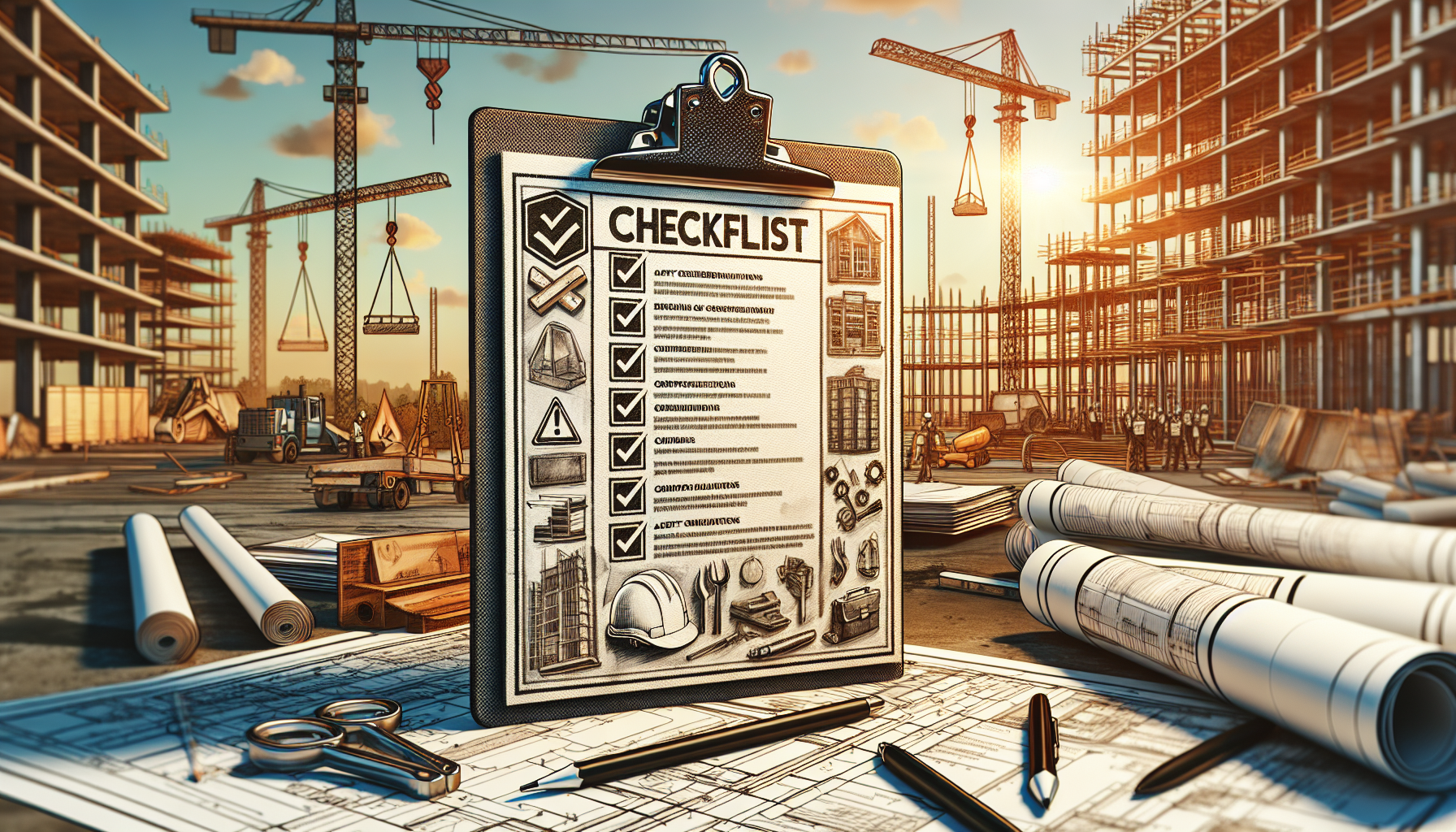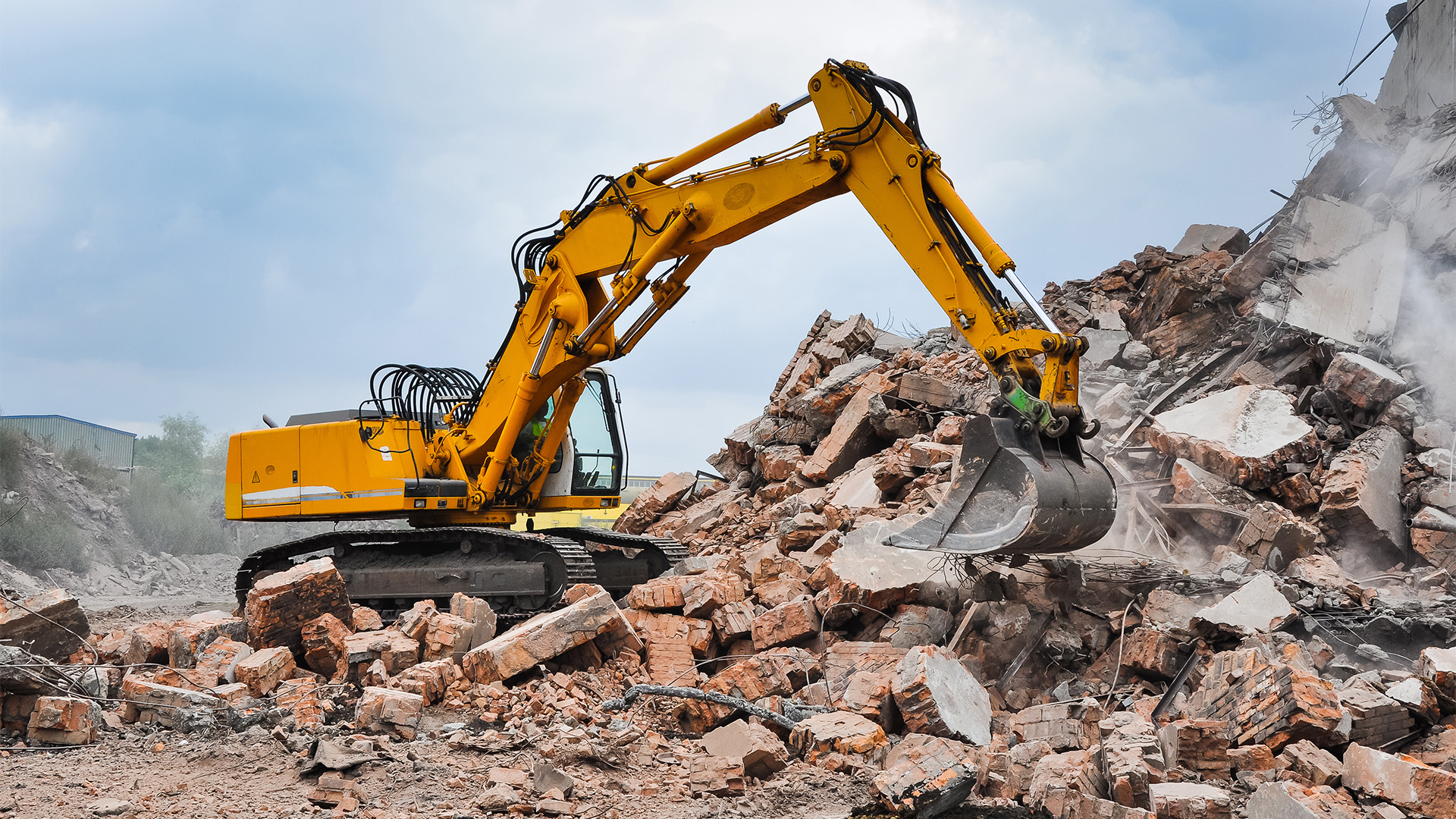Demolition contracts define the terms and responsibilities for a demolition project. Knowing how to navigate these contracts can help you secure more projects and ensure smooth execution. This article will guide you through key components, different project types, securing contracts, and important considerations for 2025. Effective project management is crucial in securing and executing demolition contracts successfully.
Key Takeaways
-
Demolition contracts are essential for defining responsibilities, mitigating risks, and ensuring compliance with safety standards in demolition projects.
-
Key components of a demolition contract include the scope of work, timeline, payment terms, safety protocols, and mechanisms for handling changes in project scope.
-
Effective management of demolition projects involves securing proper permits, conducting thorough site assessments, and implementing strict safety measures to ensure worker and community safety.
Understanding Demolition Contracts

Demolition contracts serve as formal agreements outlining the responsibilities and expectations between the parties involved in a demolition project. These contracts are crucial in ensuring that every aspect of the project is clearly defined, minimizing the chances of disputes and misunderstandings. Whether it’s urban redevelopment, hazard removal, or infrastructure projects, having a well-structured contract is vital for safe and efficient project execution.
The primary parties involved in a demolition contract are usually the property owner and the demolition contractor, with subcontractors often brought in for specific tasks. These contracts play a significant role in the construction industry by helping mitigate risks and ensuring compliance with local regulations and safety standards. Legal compliance is essential in demolition contracts to minimize disputes and ensure adherence to regulations. This is particularly important in demolition projects where the margin for error is minimal, and the consequences of mistakes can be severe.
Understanding the fundamental elements of these contracts is the first step towards winning more contracts. Clearly defining the scope of work, timelines, safety measures, and payment terms ensures that both parties can proceed with confidence, knowing their interests are protected and responsibilities well-defined.
Key Components of a Demolition Contract
A demolition contract is a formal agreement between a property owner and a contractor that specifies the scope, timeline, costs, and safety protocols for a demolition project. One of the key components is the detailed specifications regarding the scope of work. This includes defining the specific structures to be demolished and the extent of the demolition work. This clarity helps prevent any misunderstandings and ensures that both parties have a mutual understanding of what the project entails.
Another crucial element is the timeline, which should specify the start and completion dates as well as any critical project milestones. Sticking to the timeline maintains project momentum and avoids unnecessary delays. Payment terms are also a vital component, typically encompassing the total amount due and specifics regarding deposits and progress payments. This guarantees fair compensation for the contractor and keeps the property owner informed of their financial obligations.
Safety protocols outlined in the contract are essential to protect workers, the public, and surrounding properties during the demolition process. Additionally, the contract should provide mechanisms for handling changes to the scope of work, including documentation and approval processes. This flexibility allows for adjustments to be made as necessary, ensuring that the project can adapt to any unforeseen challenges.
Types of Demolition Projects

Demolition projects can vary significantly based on the type of structure and the techniques required. Residential demolition often targets parts of a home, allowing for renovations while preserving the main structure. This type of demolition can involve either partial or complete removal of buildings such as homes or garages, typically to remodel or expand living spaces. To effectively manage these projects, it is essential to demolish any unwanted structures.
Commercial demolition, on the other hand, involves larger buildings like offices and hotels in the city and often requires specialized handling of hazardous materials like asbestos. This type of demolition entails the dismantling of public or commercial structures like offices and shopping centers. The complexity of these projects often demands stringent safety protocols and meticulous planning to manage the risks associated with hazardous materials.
Industrial demolition is the most complex type and includes dismantling facilities like oil refineries and chemical plants. These projects require thorough planning for safety and waste management due to the hazardous materials and intricate structures involved. Each type of demolition project presents unique challenges and requires specific expertise to ensure successful execution.
How to Secure Government Contracts for Demolition

Securing government contracts can significantly boost your demolition business’s growth and success. To bid on federal construction projects, contractors must register on SAM.gov, where all design and construction contract opportunities are published. This registration process is a crucial first step in accessing a wealth of opportunities that can provide substantial revenue streams.
Once you identify government contract opportunities, focus on understanding the specific requirements for each bid and tailoring your proposal accordingly. A well-crafted bid proposal is essential in securing government contracts, as it showcases your ability to meet the project’s demands. This means paying close attention to the details and demonstrating how your services meet the project’s needs. Tailoring your proposals to highlight your experience, capabilities, and compliance with federal regulations can make your bid stand out in a competitive field.
Important Considerations Before Signing a Demolition Contract

Before signing a demolition contract, it is essential to ensure compliance with all applicable local, state, and federal regulations related to safety, environment, and zoning. This involves creating a comprehensive demolition plan that adheres to local regulations and securing the necessary permits. Proper planning is crucial for safe demolition, including an engineering survey to assess structural integrity and identify potential hazards.
Ensuring the security of nearby utilities helps prevent accidents. Proper management of these utilities prevents inadvertent damage or disruptions to essential services during demolition. Practicing source reduction before demolition can also minimize waste by optimizing resource use in construction and reducing excess material delivery. This proactive approach not only supports environmental sustainability but also reduces disposal costs.
These steps prepare you to execute the demolition project safely and efficiently. Addressing these considerations mitigates risks and ensures compliance with relevant regulations, leading to smoother project execution.
The Role of a Contractor in Demolition Projects
Choosing the right contractor is crucial for the success and safety of a demolition project. A knowledgeable contractor can significantly enhance the efficiency and safety of a demolition project. Assessing the contractor’s availability ensures their schedule aligns with your project timeline. Verifying the contractor’s appropriate licensure, which varies by state, is also crucial.
Ensuring the contractor is insured protects you from liability in case of accidents on site. The contractor should conduct a thorough site evaluation of the demolition site to determine the appropriate methods and identify any potential hazards. Risk assessments before starting demolition work help identify and mitigate potential hazards, ensuring a safer working environment.
By choosing the right contractor, you can ensure that your demolition project is executed efficiently and safely. The contractor’s role is pivotal in every stage of the project, from planning and risk assessment to execution and completion.
Safety and Security Measures in Demolition
Implementing safety protocols is a crucial responsibility of the contractor to ensure the well-being of workers and the surrounding community during demolition. Safety of workers and the community is paramount; enforcing strict safety protocols and providing ongoing training helps address safety challenges. Employers must determine necessary personal protective equipment (PPE) for workers, which may include eye protection, hard hats, and fall arrest systems.
A commitment to safety protects both workers and surrounding structures and the community. Prioritizing safety and security measures minimizes the risk of accidents and ensures a smooth demolition process. Such a commitment to safety not only protects lives but also enhances the company’s reputation.
Managing Materials and Debris Post-Demolition
After the demolition process, contractors are responsible for the removal and proper disposal of debris and construction materials. Deconstruction involves carefully dismantling buildings to salvage valuable materials for reuse, which supports resource conservation. Utilizing salvaged materials can enhance local economies by reducing construction costs and supporting the reuse of local resources.
Recycling C&D materials can transform them into new products, with common materials like concrete and asphalt often being turned into aggregates. Responsible waste management is vital due to environmental concerns; implementing effective recycling plans can minimize legal risks and enhance company reputation.
Responsible management of materials and debris contributes to environmental sustainability and improves industry standing.
Payment Terms and Financial Aspects of Demolition Contracts

Payment agreements usually state that contractors are compensated based on the percentage of work completed or upon reaching specific milestones. Contractors often submit monthly payment applications detailing the work accomplished, with the total amount being part of the contract sum. A detailed schedule of values, which breaks down costs and timelines for each project component, is usually prepared prior to work commencement.
Clear payment methods and consequences for non-payment are crucial to preventing disputes between owners and contractors. Final payments are generally made after the project is inspected and the owner can respond with satisfaction with the completed work.
Contracts should outline the timeframe for owner payments following invoice receipt and any applicable interest on late payments. A request for retainage may be withheld by the owner to ensure completion, with conditions for its release specified in the contract.
Common Challenges in Demolition Projects and How to Overcome Them
Demolition projects often face various challenges, including permit delays, site constraints, and unexpected findings. Permit delays can disrupt timelines; starting the process early and working closely with local authorities can mitigate this issue. Site constraints, such as limited space or neighboring structures, can complicate demolition projects; thorough site assessments and precision techniques are essential solutions.
Unexpected findings like hidden asbestos or unknown utility lines can affect budgets; comprehensive pre-demolition surveys are crucial for early detection. Regular site inspections during the demolition process help ensure the location of the project stays on track and meets expectations. Including dispute resolution methods in the contract helps address potential conflicts during the project.
Summary
Winning demolition contracts in 2024 requires a comprehensive understanding of the industry, from the intricacies of demolition contracts to the importance of safety and security measures. By carefully planning and executing each stage of the project, contractors can ensure successful outcomes and build a strong reputation in the industry.
The key to success lies in thorough preparation, attention to detail, and a commitment to safety and sustainability. By following the tips and insights provided in this blog post, you can navigate the complexities of demolition projects and increase your chances of securing contracts in this competitive field.
Frequently Asked Questions
What is the importance of a demolition contract?
A demolition contract is crucial as it clearly delineates the responsibilities and expectations of all parties involved, which helps minimize disputes and ensures adherence to regulatory requirements. Consequently, having a well-defined contract fosters smoother project execution and legal protection.
How can I find government demolition contracts?
To find government demolition contracts, you should register on SAM.gov, as it is essential for accessing federal construction project opportunities. This platform provides the necessary resources to identify available contracts in this sector.
What are the key components of a demolition contract?
A comprehensive demolition contract should include the scope of work, timeline, safety measures, payment terms, and change management processes. Ensuring these elements are clearly defined will help facilitate a smooth demolition project.
What safety measures should be implemented in demolition projects?
Implementing strict safety protocols, utilizing personal protective equipment (PPE), providing ongoing training, and ensuring community safety are essential measures in demolition projects. These precautions are crucial to protect workers and the surrounding environment.
How should materials and debris be managed post-demolition?
Proper management of materials and debris post-demolition involves the removal and disposal of waste by contractors, alongside the salvaging of valuable materials for reuse and the implementation of recycling plans. This approach promotes sustainability and efficiency in waste management.



